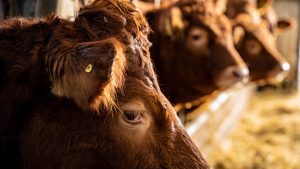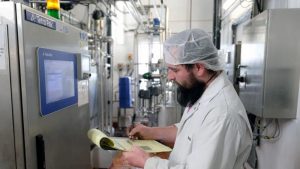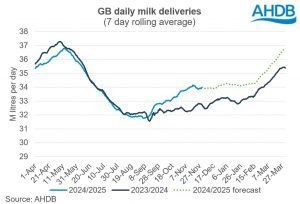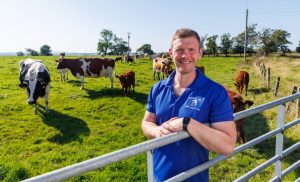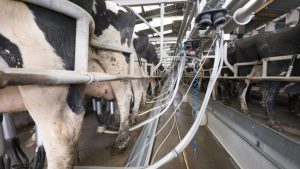
Ash Amirahmadi, the UK managing director of dairy giant Arla, said “we are calling time on cheap milk,” as the business set out its plan for the next five years.
He said while consumer prices as a whole have gone up 26pc over the last 10 years, the price of milk has dropped by 7pc.
And that has squeezed margins for farmers now battling rising prices for feed, fuel and fertiliser – a trend which was accelerated by the impact of the war in Ukraine on world commodity markets.
“This strategy is about improving the profitability of fresh milk,” he said.
“We saw the inflation on farms, on feed, fertiliser and fuel, starting around June or July last year.
“There were already some pressures building, but since the Ukraine crisis that’s just increased exponentially, particularly things like fertiliser.”
It could take some time for costs to be passed through to shoppers, he said, but over the next five years things are likely to change.
The message was echoed by Norfolk dairy farmer Ken Proctor, whose family runs a milking herd at Shipdham, near Dereham.
“Our costs have rocketed, there’s no doubt,” he said. “We are victims of our own success, we have become very efficient to keep in business, and when we get a price constraint we try to get around it.
“But I am completely behind what Ash says. Milk is too cheap in the supermarkets, and if people want milk they are going to have to pay for it.
“If we are going to expand and be more efficient and take animal welfare into consideration, as we must, then we need higher prices.”
Mr Proctor said the price of rapeseed meal for his cows had risen from £230 per tonne to almost £400 in the last eight months, while the availability of migrant labour was also a major issue.
Arla, a co-operative which is the UK’s largest supplier of fresh milk, said its 2,100 UK farms are also facing added costs to invest in new ways of producing which can help fight climate change.
Mr Amirahmadi said Arla farmers are experimenting with innovative new technologies such as different feeds that could reduce emissions of methane, a potent greenhouse gas.




